If you’re a longtime member of Sistahbiz or you’ve been reading our posts for a while, then you probably already know just how often I recommend pursuing government contracts as a way of scaling your business. There’s big money there, Sis, and if you can get your foot in the door at the state or federal level, then this will open up a lot of new opportunities for your company.
So, given the benefits on offer, you’ll want to make sure that your company is ready to go and compete for those big checks. As we saw with an earlier post, getting your SAM registration and CAGE number is a great start. But there’s more! The US Chamber of Commerce also recommends getting certified as a minority-owned business, since every US government entity has a part of its budget set aside for working with contractors from underrepresented communities.
In other words, those dollars might already have your name on them, Sis. It’s just a matter of making sure they know that name! If you work in an area such as construction, IT/telecommunications, security, or architecture, these are some of the top industries where the US government solicits contracts. Don’t let that limit you, though: Uncle Sam needs catering, consulting, event services, and more, too.
So why not be prepared for those big opportunities before they turn up? Getting a government certification for a minority woman-owned company should be near the top of your to-do list.
What We’re Talking About
Here are some of the most common terms that you’ll see while reading about these particular kinds of government certifications.
- MWBE = A Minority Women Business Enterprise (MWBE) is a business that is at least 51% owned and controlled by women from minority groups in the US, which includes Black, Asian, Hispanic, and Indigenous women. Sometimes states don’t offer MWBEs, but they do offer the two certifications mentioned next: MBEs and WBEs.
- MBE = A Minority Business Enterprise (MBE) is a business at least 51% owned and controlled by people who are members of minority groups in the US.
- WBE = A Woman Business Enterprise (WBE) is a business that is at least 51% owned and controlled by women.
- 8a/7a = These are resources from the US Small Business Administration (SBA) that are dedicated to supporting certain kinds of small businesses. The 8a Business Development Program provides a broad scope of assistance to businesses run by socially and/or economically-disadvantaged entrepreneurs: the SBA offers a full overview of these qualifications here. Meanwhile, the 7a is a loan program for small businesses, and the SBA lists eligible qualifications here.
- Prime contractor = This is the person who does most of the day-to-day work on a contract. Your small business may apply to be the prime contractor or one of many contractors working on a particular government project.
- Subcontractor = This is the person or people who sign on to complete just part of a contract. A subcontractor may work for the prime contractor instead of the client directly.
- RFP = A request for proposals (RPF) is a public announcement about a new project that needs contractors to complete it. The organization or agency that posts an RFP will consider all of the contractor bids that it receives for that project and pick the contractor whose bid seems the best, most cost-effective, or meets some other criteria.
- Bid process = This is the process in which an organization or agency will select a contractor, purchase products and services, or subcontract a project. The project manager sends out a project description and interested contractors submit the bid describing how much they would charge and how long it would take to complete. NOTE: RFPs and bid processes often overlap!
- Procurement = This is the activity of obtaining goods or services needed for a particular business function. Either the government or your company might sign a procurement contract (i.e., an agreement to use certain kinds of products and services on a particular project) or you might be managing procurement on your own end as you work to fulfill the requirements of a particular contract.
MWBE Certifications
It’s also worth knowing that there are different kinds of certifications, and even resources, available at each level of government. For instance, as Justworks reports here, some states will treat MBE (Minority-owned Business Enterprise) and WBE (Women-owned Business Enterprise) as separate certifications.
In effect, working with your city may look quite different from working with your state, and both of those differ from working with a federal agency! Here’s a quick look at some of those different types.
- Federal = You can apply for a federal MBE certification through the National Minority Supplier Development Council, or NMSDC. Their application and recertification options are all available online. The SBA also has applications for Small Disadvantaged Businesses (available here) and for women-owned businesses (available here).
- State = Some states have specific resources dedicated to MBE, WBE, and/or MWBE certifications, and most states will also have specific application processes. The NCSL has a useful list here, or you can visit your state’s official website for a more specific overview of your options.
- Other (City, Local, Corporate) = State and federal are the big players here, but they’re not the only ones. Some major US cities (think New York, Chicago, and more) also have their own programs for MBE, WBE, and MWBE certifications. It might take some research on your part here, but it’s certainly worth looking into whether you have additional options.
Obtaining Your Certification
Ok! Now that we’ve got the terms and the types out of the way, Sis, where do we go from here? First things first: it depends on which certification, or certifications plural, that you’re looking at.
If you want an MBE, then make sure that you qualify to apply, according to the criteria listed by the NMSDC. As we’ve already seen, they’re looking to support for-profit US businesses that are at least 51% owned and managed/operated on a day-to-day business by those from minority groups. On that page the NMSDC also has a list of all the documents that you’ll need to include with your application, which will include your resume, 2 years of federal tax returns, your EIN, and current financial statements, among others. Each type of business (franchise, LLC, partnerships, etc.) will also need to submit specific additional documents.
Or, if you’re more interested in something like the SBA’s 8a Business Development Program, then you can also apply for that online. (This will require having an SAM entry and CAGE number already, though.) But once you’ve gotten through this process, then your certification will be good for 9 years.
Whew! If this sounds like a lot, though, know that you aren’t alone. Many states and major cities have resources that will include help and support for the whole certification process; there are also organizations like MWBE Enterprises, a private organization that offers support in this area. And of course, come chat with us here at Sistahbiz!
Whichever route you decide to go, though, make sure that you’re taking advantage of all the options by getting prepared for government contracting. Go get those big checks!

